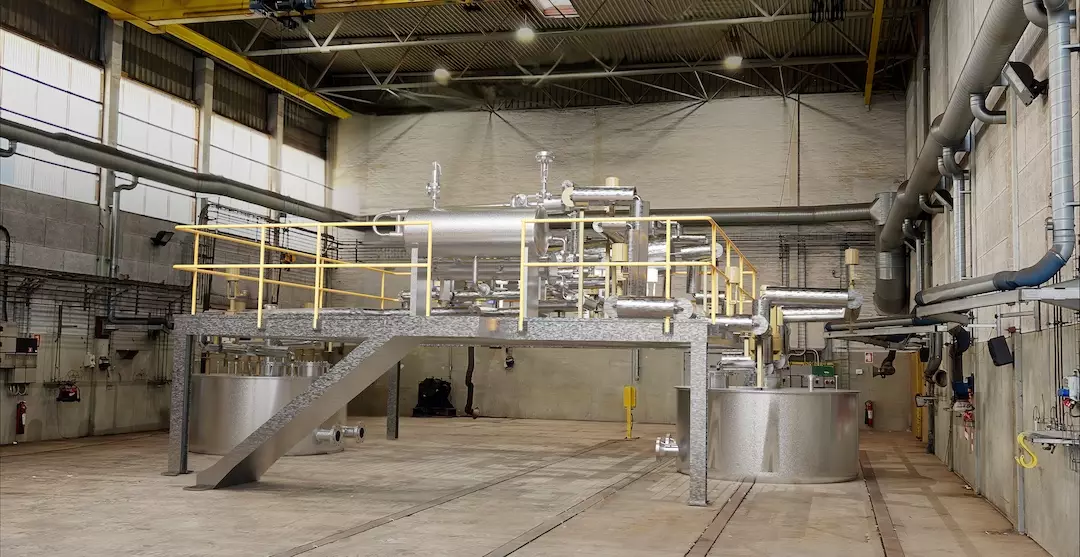In an era marked by rising energy demands and an urgent need to combat climate change, industries worldwide are forced to reevaluate their energy sourcing strategies. Traditional lithium batteries, while popular in consumer electronics and automotive sectors, have inherent limitations that render them unsuitable for many industrial applications. The emergence of thermal energy storage technology, particularly through molten salt, represents a promising alternative that can address the specific needs of various sectors, such as food production and heavy industry.
Lithium batteries have accelerated innovation in several domains; however, they often fall short when it comes to industrial applications where large amounts of energy are required over extended periods. Their high costs, bulky nature, and sometimes impractical scale for certain processes can hinder operational efficiency. In contrast, thermal batteries, which store energy as heat, provide a viable solution. By utilizing a relatively simple storage medium—molten salt—companies can store energy at high temperatures for prolonged periods, ensuring a steady and reliable energy source that can be tapped when needed.
Danish startup Hyme Energy exemplifies the potential of thermal batteries in industrial settings. Their technology is particularly suited to energy-intensive sectors, including the food and beverage industry. By partnering with Arla, one of the world’s largest dairy companies, Hyme Energy is set to implement a large-scale thermal storage system that could revolutionize operations at Arla’s milk powder facility in Holstebro, Denmark. The collaboration not only highlights the demand for efficient energy storage solutions but also underscores the commitment to sustainability through a complete transition away from fossil fuels.
The partnership between Hyme Energy and Arla extends beyond technology implementation; it also aims to secure EU funding to bolster development efforts. This speaks to the growing recognition of the importance of partnerships between innovative startups and established industrial players. By aligning interests and expertise, these collaborations can facilitate the rapid adoption of cutting-edge technologies that minimize carbon footprints and enhance operational efficiency.
Hyme’s approach to using molten salts allows them to convert renewable electricity into heat, which is then effectively stored. This system operates at temperatures exceeding 500°C and is particularly advantageous in settings where consistent steam production is required. Such efficiency is essential for Arla’s operations, which rely heavily on continuous and high-temperature steam to maintain production processes.
One critical question arises: How quickly can thermal energy storage technology be scaled to meet the burgeoning demands of various industries throughout Europe and beyond? Ask Emil Løvschall-Jensen, CEO of Hyme, expresses optimism about the scalability of their technology. With no inherent limitations on the storage medium’s production, their strategy focuses on collaborating with established suppliers. This not only accelerates scaling efforts but also allows for improved efficiency and lower costs.
While venture capital investment in green technologies has seen an uptick, complexities persist. While software ventures may attract easier funding, the capital landscape for physical technologies like thermal battery systems is more intricate. However, emerging evidence suggests a gradual shift, with an increasing number of investors recognizing the significance of engaging with early-stage thermal innovations. Hyme Energy’s successful fundraising efforts, which have amassed approximately €25 million so far, further signify the growing interest in this vital sector of renewable energy innovation.
Hyme Energy is not alone in the thermal battery space. Competitors like Electrified Thermal Solutions and Fourth Power are developing unique technologies, showcasing the versatility and potential of thermal energy storage. As the industry evolves, it’s likely that different approaches will coexist, each catering to specific industrial needs and executions.
The global shift towards renewable energy solutions is critical as industries seek to reduce their dependency on traditional fossil fuels. Projects like that of Hyme and Arla serve as beacons of innovation, demonstrating that sustainable energy practices are not just viable but necessary advancements for the future of industrial operations.
As technologies develop and industries become increasingly attuned to the energy challenges ahead, the importance of thermal storage solutions, bolstered by strategic partnerships, will only grow. The time has come for industries to embrace these advancements and pave the way for a more sustainable future.

